Za’atar has this magical way of making flatbread, hummus, and roasted veggies taste like they came straight out of a Middle Eastern kitchen. But let’s be real—most of us don’t always have a jar of it sitting around. The good news? You can capture the same herby, tangy, and nutty vibe with a few pantry staples. I’ll walk you through the best simple za’atar substitutes so you don’t have to abandon your recipe halfway through.
What is Za’atar, Anyway?
Za’atar isn’t one single herb—it’s a blend. The classic version usually includes dried thyme, oregano, marjoram, sesame seeds, and sumac. Some versions throw in salt or other regional twists. What makes it special is that balance of herbs (earthy), sesame (nutty), and sumac (tangy). When you’re hunting for substitutes, you want to mimic those three elements.
1. Thyme + Sesame Seeds + Lemon Zest
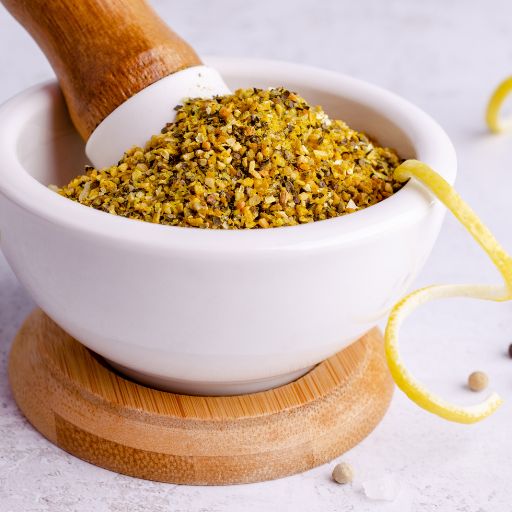
This is my go-to quick fix when I’m in a pinch. Toast the sesame seeds in a dry pan until golden for that warm, nutty kick. Add dried thyme for the herbal note and lemon zest to mimic sumac’s tartness. It’s not identical, but on roasted chicken or veggies, you’d hardly notice the difference.
2. Italian Seasoning + Toasted Sesame Seeds
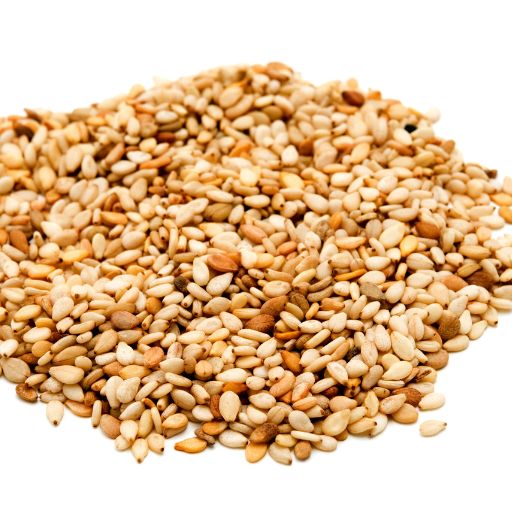
Italian seasoning might not scream Middle Eastern, but it has thyme, oregano, and marjoram—the backbone herbs of za’atar. Mix it with toasted sesame seeds, and suddenly you’ve got something that works beautifully on flatbreads or sprinkled over olive oil.
3. Sumac + Thyme
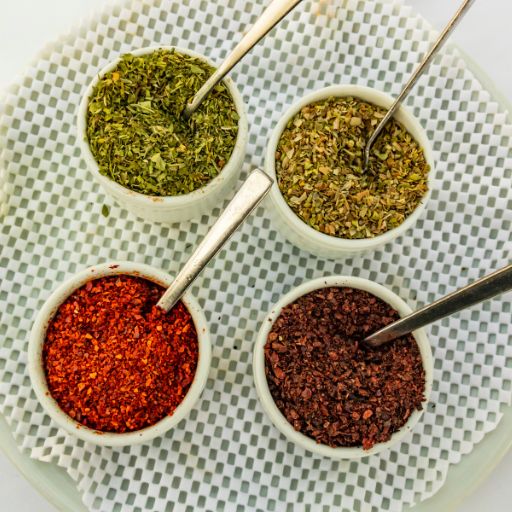
If you happen to have sumac (lucky you), pairing it with thyme is a game-changer. You get that citrusy tang from sumac and the earthy depth of thyme. Toss in sesame seeds if you have them, but even without, this duo makes a strong stand-in for za’atar in salads or marinades.
4. Oregano + Marjoram + Sesame Seeds
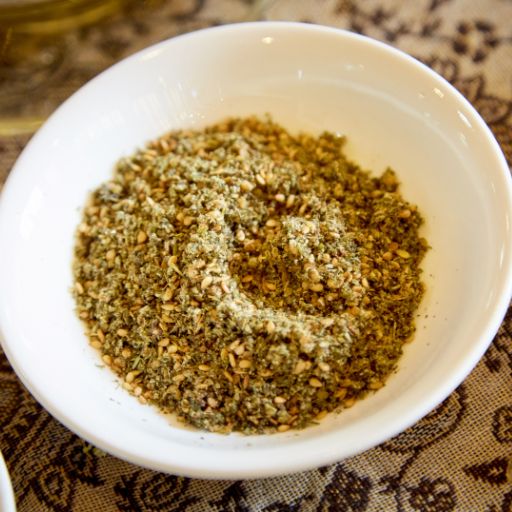
For a substitute that leans more on the herby side, combine oregano and marjoram with sesame seeds. It’s fragrant, savory, and works especially well in meat rubs. A little lemon zest or juice takes it closer to authentic za’atar.
5. Dukkah + Extra Herbs
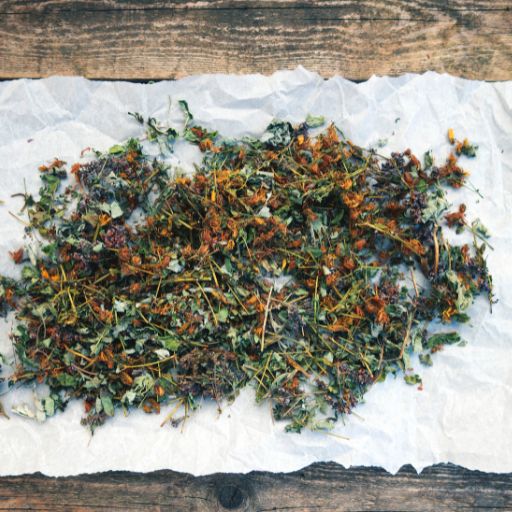
Dukkah, an Egyptian spice mix made from nuts, seeds, and spices, isn’t quite the same but brings that sesame crunch and nutty depth. Add a sprinkle of dried thyme or oregano to balance it out, and you’ve got a fun twist on za’atar that’s fantastic for dipping bread in olive oil.
6. Lemon Pepper + Sesame Seeds
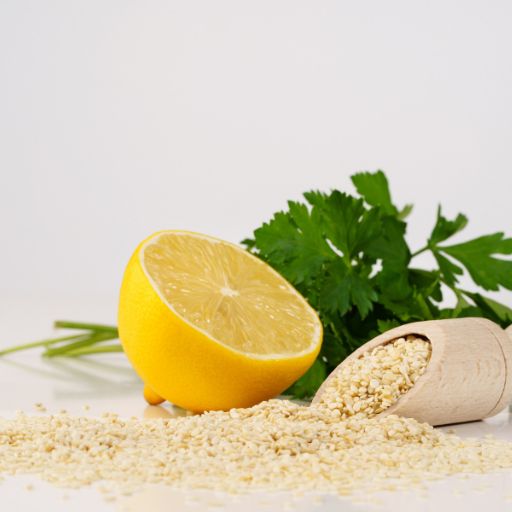
This one might surprise you, but lemon pepper seasoning can actually work as a za’atar substitute in a pinch. It brings citrusy tang and herbal notes. Add sesame seeds to balance it out, and you’ve got something that works surprisingly well sprinkled on roasted veggies or fish.
Tips for Getting it Right
- Toast the sesame seeds: It makes a big difference in flavor.
- Add salt only if needed: Some seasoning mixes already have salt, so taste first.
- Think about the dish: For bread dips, go heavier on sesame seeds. For meats, lean into herbs and tang.
Final Thoughts
Za’atar is one of those blends that feels irreplaceable until you realize its magic comes from very ordinary ingredients. The key is balancing earthy herbs, a little nuttiness, and a pop of citrusy tang. My personal favorite hack is thyme, sesame seeds, and lemon zest—it’s simple, bright, and works every single time. Next time your recipe calls for za’atar, don’t stress. Your pantry probably has everything you need to fake it beautifully.

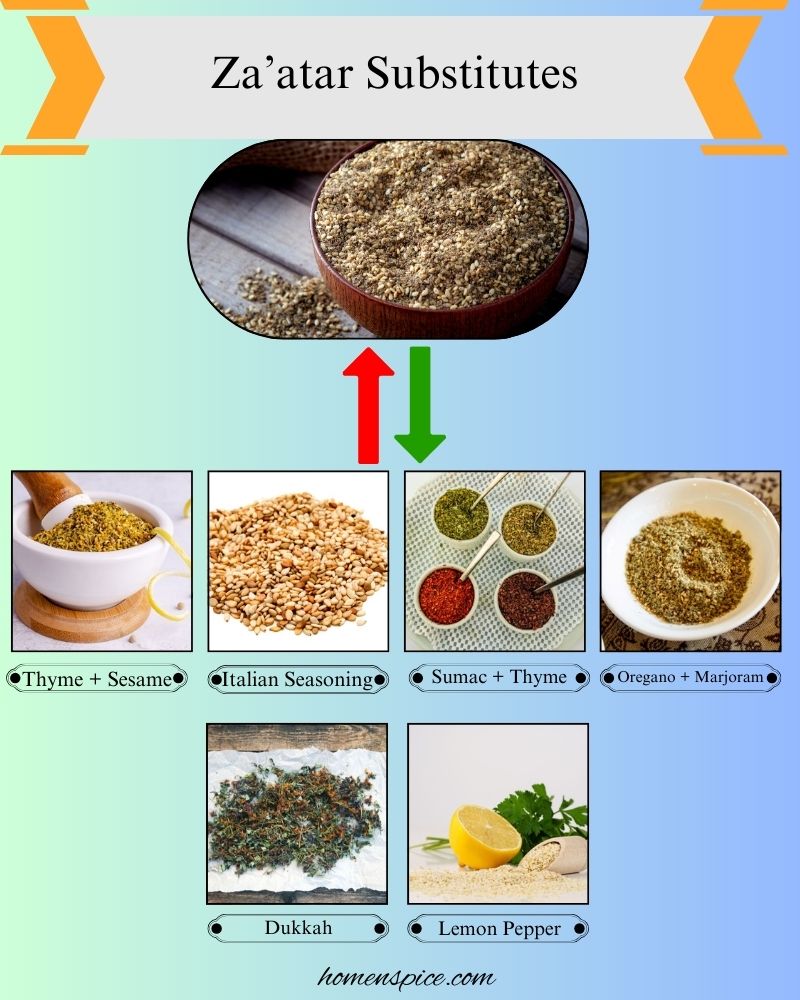





Leave a Reply